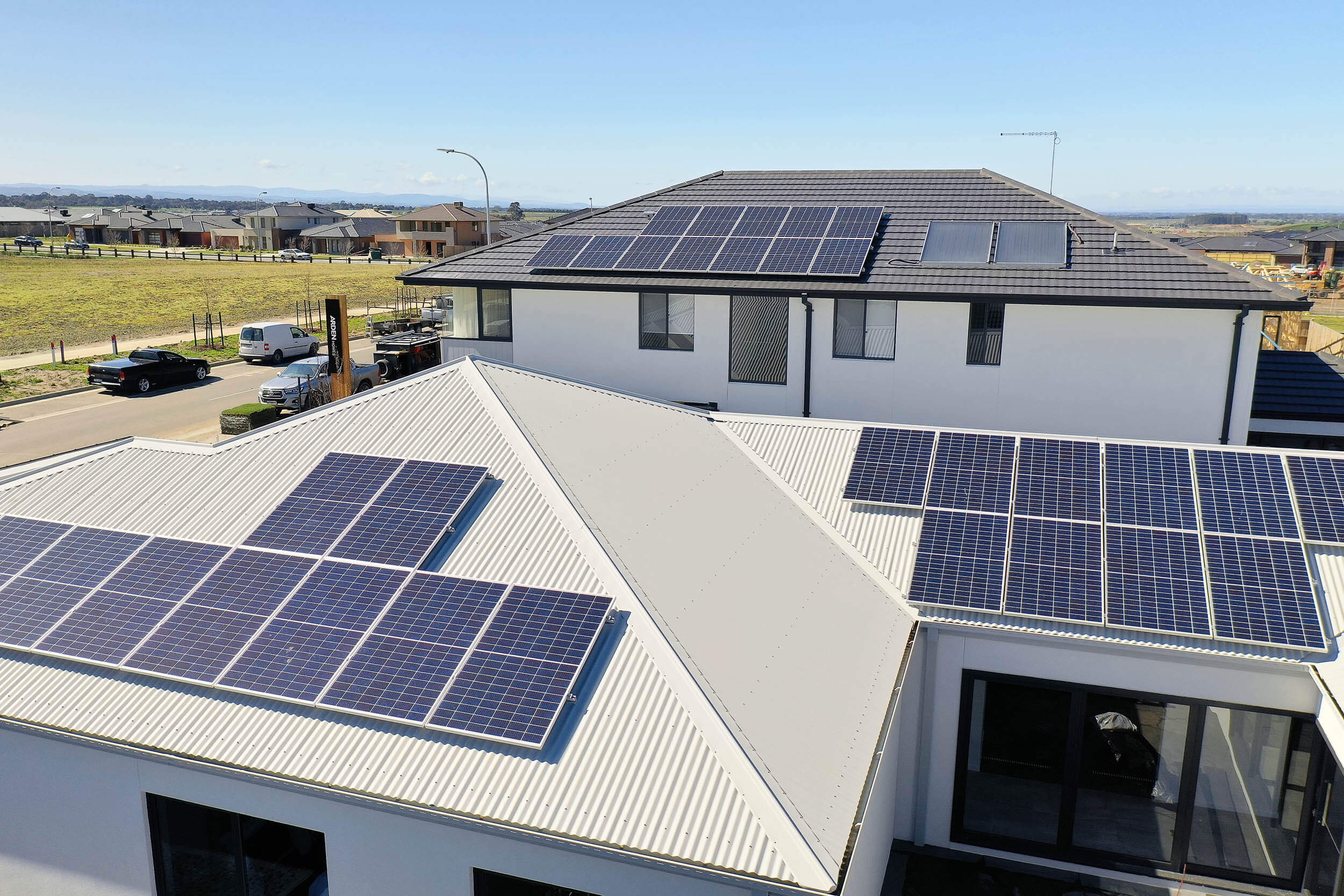Talking Sustainability with Director Dean Morrison

Sustainability is a core value of Arden Homes, and it’s something that can be seen at every level of our business – from our practices on the job site, to our partnerships with suppliers, and of course, in our business leadership.
At the forefront of our sustainability work is Director Dean Morrison, who has been in the industry for over 25 years.
When he started his career in the industry, Dean began to notice a shift in attitudes towards sustainability when 5-star energy efficiency was first mandated as standard. His employer’s response at the time showed Dean how important leadership was in driving sustainability practices forward.
“The owner there was quite visionary, in that he really pushed to go to 5-star earlier than other builders did. He did that from a competitive point of view, but it was probably the start of when I began thinking about sustainability and energy-saving”.
Dean would eventually go out on his own, and when starting Arden Homes ten years ago, sustainability was still on his mind.
“It gave me the opportunity to really think about what we wanted the business to stand for. While we do compete with the volume builders – we build 200 homes a year, we offer customisation and flexibility – we also started to think more about sustainability.”
In the years that followed, Dean and Arden would experiment with different levels of inclusions or upgrades to make designs more sustainable, but found that consumers were more likely to opt for design-related upgrades over making their homes more sustainable.
So, in 2021, Dean doubled down on sustainability as a focus and elevated their standard inclusions even further to include a range of energy-efficient items within every Arden home.
“All of our homes come with energy-saving solar panels, double glazing, LED downlights, and every house is a minimum of 6-star energy efficient – though in most cases, we probably go above that.”
Aside from energy-efficient features, Dean has taken this one step further to consider how each client’s unique block of land can be considered as part of the home design process.
“We try to orient the house so that northern areas get more light and more heat through them, while the western windows have more shading. And it’s really not until you move into a house that you understand the benefits of these features, like much cheaper energy bills or, in a power outage if you take the next step, you have a battery to still run essential things like your garage door or your fridge.”
Dean’s speaking from experience – he recently customised our Bargello 42 home to highlight just how far energy-efficient home design has come.
“Melbourne’s cold climate means that if you over-insulate the house, you can get condensation – so I’ve put in an air-exchange system, which replaces the air within the house with fresh air from outside. It takes into account the temperature in the house and then feeds in either cooler or warmer air to help you balance the temperature. You don’t have to then regulate the temperature in the house as much with mechanical heating or cooling.”
Dean’s home won’t drop below 18 degrees, even in Melbourne’s frosty winter nights, meaning it takes less than an hour to heat the whole house to a comfortable 21 degrees.
Split-systems throughout the house also help to isolate cooling to one room at a time, further saving on energy. And these savings all add up – especially when looking at the monthly energy bill.
“When I got my energy bill the other day – we’re in winter as well, so there’s not as much sunlight for the solar – our family of 5 is using the same amount of energy as a household with less than one person each day!”
Dean believes that this level of sustainable design will become standard, especially with a 7-star minimum efficiency mandate on the horizon.
“It’ll be quite difficult for some homes to achieve that. The industry is going to have to get their head around things like windows becoming smaller to keep more heat in the house during the cooler months.”
Arden’s proactivity in the space has seen the business become an industry leader, sought out for its expertise.
“We find that land developers come to us for advice, or for partnerships knowing that we’re already doing so much work in this space.”
“We’re working with Villawood on a new estate in Sunbury where we’re going to be doing two 7-star display homes which will be full electric homes. The retail cost is around $15,000 – 20,000 extra, but the largest component of this is the mechanical heating and cooling. We are working with suppliers at the moment to see if we can get that price down.”
Costs unfortunately still play a large role in limiting sustainable building practices, across all facets of the industry.
“If you’re building 1,000 homes a year and can save $10 on an item, all of a sudden you’re saving $10,000. Find a way to save $1,000, you’ll save $1 million across the year. You can see why the volume builders don’t want to go too far with sustainability,” Dean says.
There’s still hesitation from home buyers, too.
“We absorb a lot of the costs ourselves to keep pushing sustainability, but we’re still not a builder for everybody. We might appear more expensive initially than our competitors, but when you break down what we include as standard – as well as the long-term savings of the energy efficient homes – we come out ahead.”
As Arden continues to push its capabilities in sustainable design, Dean’s confident that the industry can follow suit.
“It shows it can all be done,” he says. “Everyone needs to play their part.”